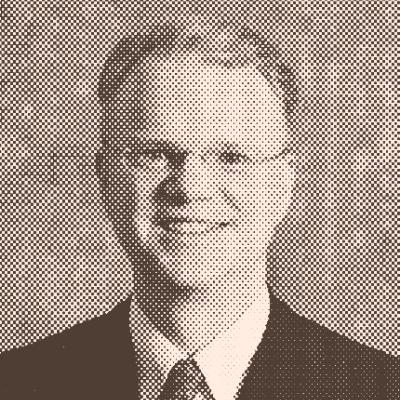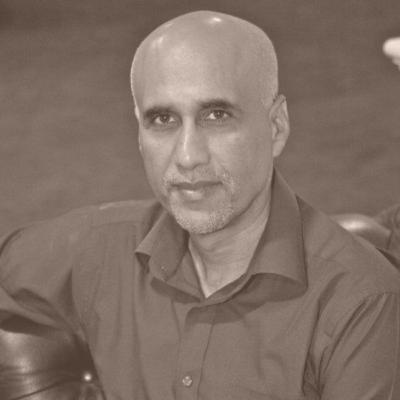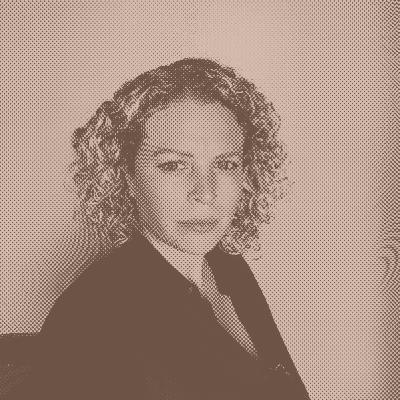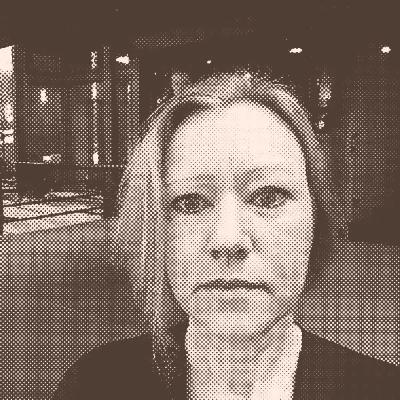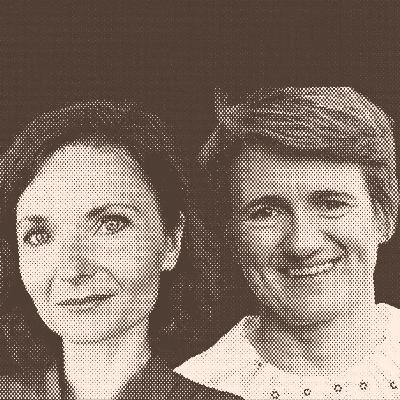Discover FARSIGHT
FARSIGHT

FARSIGHT
Author: Copenhagen Institute for Futures Studies (CIFS)
Subscribed: 24Played: 486Subscribe
Share
© Copenhagen Institute for Futures Studies (CIFS)
Description
Narrated articles and conversations with the world's foremost futures thinkers, delivered to you by FARSIGHT, a quarterly publication by the Copenhagen Institute for Futures Studies.
82 Episodes
Reverse
Trains and rail once symbolised progress and modernity in Europe. Today, they have more-so come to represent ideas of social equity and public good – an unassuming but universally accessible means of transport. Could rail reclaim its lost significance and prestige – and if so, what would it take?Subscribe to FARSIGHT by becoming a Futures Member at the Institute.Author: Casper Skovgaard PetersenNarration: Manya Lind (with ElevenLabs AI)Published by the Copenhagen Institute for Futures Studies
Since its invention in the sixteenth century, the idea of 'Utopia' has carried an inherent ambiguity. Suspended between reality and fiction, the emancipatory and the fatal, two conflicting meanings have clung to the word for centuries and continue to do so today, as visions of utopia are making a comeback among tech billionaires and Saudi Arabian royalty alike.Subscribe to FARSIGHT by becoming a Futures Member at the Institute.Author: Mads VindaalNarration: August Leo Liljenberg (with ElevenLabs AI)Published by the Copenhagen Institute for Futures Studies
Kahn the genius, Kahn the futurist, Kahn the psychopath. The FARSIGHT hosts take a closer look at the life and legacy of one of the 20th century’s most influential futurists and public intellectuals.Subscribe to FARSIGHT by becoming a Futures Member at the Institute.Hosts: Casper Skovgaard Petersen & August Leo LiljenbergSourcesAlex Abella: Soldiers of Reason: The RAND Corporation and the Rise of the American EmpireSharon Ghamari-Tabrizi: The Worlds of Herman Kahn: The Intuitive Science of Thermonuclear WarPaul Dragos Aligica: “The challenge of the future and the institutionalization of interdisciplinarity: notes on Herman Kahn’s legacy”Herman Kahn: On Thermonuclear WarHerman Kahn: The Year 2000Neil Pickett: A History of Hudson InstitutePublished by the Copenhagen Institute for Futures Studies
When confronted with the great crises of our time, a sense of hope about the future can seem naïve at best, or even counterproductive if it leads to complacency.Yet thinkers across psychology, behavioural science, and philosophy recognise hope as an essential driver of social and societal change. Far from being a passive sentiment, hope paired with purposeful action enables humans to imagine alternative futures and work their way through tough times.Subscribe to FARSIGHT by becoming a Futures Member at the Institute.Author: Lisa Di GiulioNarration: Manya Lind (with ElevenLabs AI)Published by the Copenhagen Institute for Futures Studies
Most futurists prefer the exploration of multiple potential scenarios over determinate paths. Some will say prediction is entirely impossible – but is this necessarily true?Subscribe to FARSIGHT by becoming a Futures Member at the Institute.Author: Christian Kaarup BaronNarration: August Leo Liljenberg (with ElevenLabs AI)Published by the Copenhagen Institute for Futures Studies
Across wealthy societies, citizens no longer believe the future will be better than the past. The idea of progress as an inevitable historical force was born in the Western world – now it may be drawing its last breath there, too.Subscribe to FARSIGHT by becoming a Futures Member at the Institute.Authors: Casper Skovgaard Petersen & Suus HulsenNarration: Manya Lind (with ElevenLabs AI)Published by the Copenhagen Institute for Futures Studies
We now understand that the future is not fixed but contingent – it can unfold in an endless number of ways, its outcome hinging on both choice and chance. When did humans discover that the future is undecided, and what did it mean? We’re joined by Thomas Moynihan, a thinker and author interested in X-risk, deep possibility, planetary-scale thinking, and the history of human self-understanding. Thomas Moynihan’s upcoming book is The History of Contingency and Future-Oriented Thought.Subscribe to FARSIGHT in print by becoming a Futures Member at the Institute.Hosts: Casper Skovgaard Petersen & August Leo LiljenbergGuest: Thomas MoynihanPublished by the Copenhagen Institute for Futures Studies
With artificial intelligence comes radical change in how information is both created and retained. What place do humans have in future knowledge ecologies?Subscribe to FARSIGHT by becoming a Futures Member at the Institute.Author: Caitlin van BommelNarration: August Leo Liljenberg (with ElevenLabs AI)Published by the Copenhagen Institute for Futures Studies
How have societies collapsed in the past? Are we heading towards a global societal collapse? And, if looking towards history, is collapse always necessarily a bad thing when viewed from the perspective of the 99%?In this podcast, Luke Kemp (re)-joins us for yet another episode of FARSIGHT to talk about his latest book Goliath's Curse: The History and Future of Societal Collapse. Luke Kemp is a Research Affiliate & Former research Associate at the Centre for the Study of Existential Risk at the University of Cambridge.Subscribe to FARSIGHT by becoming a Futures Member at the Institute.Hosts: Casper Skovgaard Petersen & August Leo LiljenbergGuest: Luke KempPublished by the Copenhagen Institute for Futures Studies
Once a minor concern, migration now ranks as one of Europe’s top political issues among voters. As fertility rates decline and strategic independence becomes a priority, calls for both low- and high-skilled immigration are growing among Europe’s leaders. We sketch out four scenarios for the future of European migration.Subscribe to FARSIGHT by becoming a Futures Member at the InstituteAuthor: Patrick Henry GallenNarration: August Leo Liljenberg (with ElevenLabs AI)Published by the Copenhagen Institute for Futures Studies
As the world grows older, will it also become more peaceful by consequence?We speak to Mark Haas, Professor of Political Science at Duquesne University in Pittsburgh and author of The Geriatric Peace: Population Aging and the Decline of War (Oxford University Press). Ageing, Haas says, will not only increase the cost and lessen the preferences and capacity for war in aged countries - it will also likely prevent a great power transition from the US to China. Subscribe to FARSIGHT by becoming a Futures Member at the Institute.Guest: Mark L. HaasHosts: Casper Skovgaard Petersen, August Leo LiljenbergResearch and production assistant: Suus HulsenPublished by the Copenhagen Institute for Futures Studies
Worldwide digital connectedness increasingly resembles an external brain, and the ability to perceive the digital world has become indispensible to us. Is the tree of evolution sprouting a new branch?Subscribe to FARSIGHT by becoming a Futures Member at the Institute. Author: Peter HesseldahlNarration: August Leo Liljenberg (with ElevenLabs AI)Published by the Copenhagen Institute for Futures Studies
Sohail Inayatullah is a pioneer in futures studies, most famous for developing the Causal Layered Analysis - a technique for investigate the role of myths, metaphors, and narratives in constructing and imagining possible futures. He us joins us to discuss the centrality of language in futures thinking, the connection between macrohistory and futures studies, and the role of the futurist in today's world.Sohail Inayatullah is a Professor at Tamkang University and UNESCO Chair in Futures Studies at the Sejahtera Centre for Sustainability and Humanity.Subscribe to FARSIGHT by becoming a Futures Member at the Institute.Guest: Sohail InayatullahHosts: Casper Skovgaard PetersenPublished by the Copenhagen Institute for Futures Studies
As the summer break winds down, journalist and trend forecaster Jenny Southan joins us to explore the futures of travel and tourism. We discuss the differences between the two, what measures dense urban centres might adopt to mitigate overtourism, how climate change and ageing populations could reshape travel patterns, and whether the Katy Perry really deserved being vilified in the press for going to outer space...Jenny Southan is the editor and founder of Globetrender, the UK’s leading travel trend forecasting agency and online magazine dedicated to the future of travel. Jenny Southan and Globetrender are not affiliated with the Copenhagen Institute for Futures Studies.Subscribe to FARSIGHT by becoming a Futures Member at the InstituteGuest: Jenny SouthanHosts: Casper Skovgaard Petersen, August Leo LiljenbergPublished by the Copenhagen Institute for Futures Studies
In the second half of the twentieth century, microchips quietly became as vital to global stability and human progress as oil. To better understand Europe’s future role in the semiconductor industry, we speak to Chris Miller, author of Chip War, for his insights.Subscribe to FARSIGHT by becoming a Futures Member at the InstituteAuthor: Caitlin van BommelNarration: Manya Lind (with ElevenLabs AI)Published by the Copenhagen Institute for Futures Studies
Studying the future was never a value-neutral project. The origins of modern futures research (known in the 1950s and 60s as ‘futurology’), lies in the ideological struggle between capitalism and communism during the Cold War. On both sides of the Iron Curtain, the future was something to be managed and controlled in the service of a dominant ideology. That briefly changed in the 1970s with the emergence of more global, emancipatory futures projects like the Club of Rome and the Peace Movement. Why didn’t it last? And what ideological baggage does futurism carry with it from itsformation during the Cold War?We discuss this fascinating history with historian Jenny Andersson, author of Future of the World: Futurology, Futurists, and the Struggle for the Post Cold War Imagination.Subscribe to FARSIGHT by becoming a Futures Member at the InstituteHosts: Casper Skovgaard Petersen & August Leo LiljenbergGuest: Jenny AnderssonPublished by the Copenhagen Institute for Futures Studies
Three of the Institute’s resident futurists engage in a classic scenario-planning exercise, crafting four distinct snapshots of the continent’s future along two axes of uncertainty: European cohesion and global collaboration.Subscribe to FARSIGHT by becoming a Futures Member at the InstituteAuthors: Daria Krivonos, Patrick Henry Gallen, and Carsten BeckNarration: August Leo Liljenberg (with ElevenLabs AI)Published by the Copenhagen Institute for Futures Studies
Author and existential risk researcher Luke Kemp joins us to discuss how to avoid the end of the world – and why the techno-utopianists may send us barrelling towards global disaster. Kemp’s upcoming book is Goliath’s Curse: The History and Future of Societal Collapse.Subscribe to FARSIGHT by becoming a Futures Member at the InstituteGuest: Luke KempHosts: Casper Skovgaard Petersen & August Leo LiljenbergPublished by the Copenhagen Institute for Futures Studies
For most of human history we believed that everything that could happen, had already happened, and would happen again – ad infinitum. The rise of novel media technologies would change that. From books to computers, the medium with which we record and process information grants us access to history's forking paths.Subscribe to FARSIGHT by becoming a Futures Member at the InstituteAuthor: Thomas MoynihanNarrator: Manya Lind (with ElevenLabs AI)Published by the Copenhagen Institute for Futures Studies
What goes on in our brains when we think about the future – and why are some individuals and cultures more adept at dealing with ambiguity, uncertainty, and risk? Our guests are Kerstin Presuchoff and Ewa Lombard, neuroscientists at LUCID (Laboratory for Uncertainty, Collective Intelligence & Decision Making) in Geneva. Subscribe to FARSIGHT by becoming a Futures Member at the Institute.Guests: Kerstin Preuschoff & Ewa LombardHosts: Casper Skovgaard Petersen & August Leo LiljenbergPublished by the Copenhagen Institute for Futures Studies






